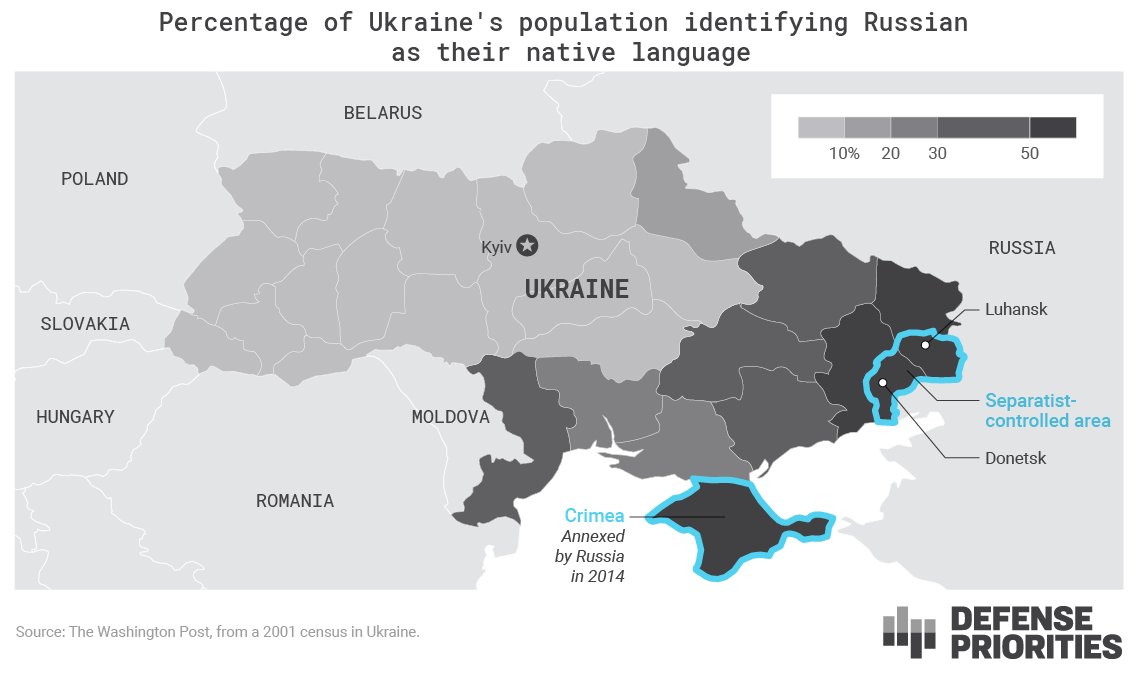The U.S. insistence that NATO membership remains open to Ukraine creates a moral hazard; the imperative of a new European security order.
HALT NATO EXPANSION
Russia is culpable—the U.S. is negligent for its NATO and Ukraine policies
Russia bears responsibility if it invades more of Ukraine, which could happen any moment. But by leading Ukraine down the garden path for years with military aid and false promises of NATO membership, the U.S. helped create the situation on which the current crisis turns. [AP / Matthew Lee, Aamer Madhani, and Vladimir Isachenkov]
Ukraine is not going to join NATO, and NATO is not going to defend Ukraine. Yet U.S. officials continue to insist that NATO must keep an "open door" to new members, a policy which ignores the risks potential membership for Ukraine causes. [NBC News / Ben Friedman]
U.S. policy fosters false hopes for Ukraine that the West will defend it, dampening its willingness to reach a painful accommodation with Russia. It misleads Ukrainians, and it increases the danger to them (acutely now), just to satisfy U.S. and NATO officials' desire to claim they might defend Ukraine in the future. [Reuters / Guy Faulconbridge]
To try to stop further Russian invasion, the U.S. has offered to discuss arms control, new military transparency initiatives, and other issues. But thus far it appears insufficient. Russia's primary security concern in Ukraine, besides Kyiv's position on the Russian-fueled rebellion in its east, is the possibility of NATO support and future membership. U.S. offers that do not address this issue will likely fail. [Nation / Rajan Menon]
Russia's recent military buildup—more than 100 battalion tactical groups—suggests it is willing to fight and die over this issue. According to Russian leaders, their fear is U.S. and NATO forces stationed in Ukraine might try to retake Crimea or threaten Russia's 1,200-mile border with Ukraine. [WSJ / Michael R. Gordon and Max Rust]
Russia's culpability does not erase this fact: keeping the possibility of NATO membership open to Ukraine risks getting it invaded, if not this week, then in the future. That will leave Ukraine less stable, less free, and less peaceful than it would be if the U.S. instead removed the possibility of joining NATO and pushed Ukraine toward neutrality. [Wavell Room / Mike Sweeney]
Advocates for restraint have long argued the U.S. should not admit Ukraine to NATO—it is difficult to defend with conventional forces, and it is unwise to extend a U.S. nuclear umbrella over. Restrainers also advocate to improve relations with Russia to advance U.S. interests and reduce the risk of nuclear war. This approach remains the best option today on its own merits—and acknowledging it now could avert a war. [DEFP]
GEOGRAPHY MATTERS
Ukraine's geography is its destiny, a buffer between the West and Russia—its politics will of necessity reflect this reality
BURDEN SHIFTING
A new and better security order for Europe—stronger allies, stronger U.S., and better relations with Russia [DEFP / Rajan Menon]
No matter what happens in Ukraine in the next few days, the crisis reflects a persistent problem: a European security order that excludes Russia, the continent's single greatest military power.
In a new explainer, DEFP Director of Grand Strategy Rajan Menon outlines what a new and better security order for Europe entails, including greater European strategic autonomy and fewer U.S. troops on the continent.
For too long, Menon writes, the U.S. has discouraged European strategic autonomy, the idea that wealthy European allies should take more responsibility for their own defense. Currently, the U.S. provides security for Europe in excess of what is necessary or prudent given limited threats, finite resources, and higher priorities elsewhere.
"Rather than harping on burden sharing, the United States should move toward 'burden shifting' that begins with reductions in American forces and eventually leads to European self-sufficiency in defense and the elimination of a permanent U.S. military presence," Menon writes.
"The belief that European strategic autonomy and a reduced U.S. military burden will cause trans-Atlantic bonds to fray and eventually break is wrong," Menon notes. The U.S., Canada, and Europe "are connected by history, culture, language (consider how many Europeans are fluent in English), trade, an array of financial transactions, tourism, and partnerships among universities and myriad civil society groups. NATO has certainly been an important bridge—but it is not the irreplaceable foundation: shared interests and values are."
The benefits to the U.S. are clear: "For the United States, reducing, if not eliminating, the costs of defending Europe will free up funds—as much as $80 billion a year—that could be used to meet defense-related needs elsewhere and to address problems festering on the home front."
QUOTE
"Ukraine is never going to come into NATO…All it would do is raise the prospect of war for all of us on a perpetual basis." [Fox News / Daniel Davis]
TRENDING
Remove all U.S. troops from Iraq today
Try something different with North Korea
Ukraine won't ever join NATO because it could mean nuclear war


